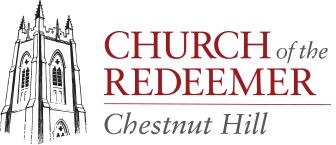Last month Sarah and I were intrigued by an article in Church Times with the heading “Education: Can singing Evensong encourage pupils to engage in worship?” The article details how a new research project titled "Give Me Joy In My Heart" explored how singing enhances discipleship and spirituality among primary school children. The project, led by former university researcher and primary teacher James Bowen, involved workshops focused on Taizé chants, Christmas, Easter, and evensong, with participation from Lichfield Cathedral’s MusicShare program. The study revealed that singing—whether contemporary worship songs, traditional hymns, or even Latin chants—promotes joy, confidence, creativity, and spiritual expression in children. Some children described singing as making them feel "happy", "free", and "loved". We were encouraged to read that the research highlighted the transformative power of singing in nurturing children’s faith and spirituality. We trust you may find the article below (reproduced in part with permission) interesting too.
Nigel & Sarah
SINGING evensong in Lichfield Cathedral sounds like an unusual school outing. For the primary-school children who sang alongside the cathedral’s choristers, and their parents and teachers in the congregation, it was an intensely moving experience. They were taking part in a new research project that has highlighted the crucial part that singing can play among primary-school children. “We think we know what young minds are capable of and interested in. This research blows a hole in that assumption,” said the Revd Dr Peter Jones, Rector of Chapel Chorlton, Maer and Whitmore, in Lichfield diocese, who assisted with the study. The Staffordshire-based research project “Give Me Joy In My Heart: Developing children’s discipleship and spirituality through singing” found that church schools viewed singing as “a fundamental part” of collective worship (which remains a legal requirement for schools).
The study found that not only contemporary worship songs but also traditional hymns, and even medieval chants, could all help to nurture faith and promote confidence, creativity, and self-expression among young children. Spearheading the research was James Bowen, a university researcher turned primary-school teacher. Mr Bowen’s project reflects the foundation’s desire to strengthen links between church, home, and school: “It had the voice of children right at the heart,” the head of the foundation, Lucy Moore, said. Mr Bowen’s analysis has convinced him that Church of England schools and churches need to work together much more, to form partnerships in collective worship, where clergy and parents can each play a part.
MUCH of the research focused on the experience of children in Mr Bowen’s own school, Baldwins Gate C of E (VC) Primary School, Newcastle-under-Lyme, in Staffordshire. He ran four workshops centred on Taizé, Christmas, Easter, and evensong. Thirty children from the school choir attended each workshop, led with help from Dr Jones and Cathy Lamb, the director of MusicShare, a schools singing programme run by Lichfield Cathedral School, Lichfield Cathedral, and the Music Partnership. “James told me about his research and I was very excited by it,” Dr Jones said. “It was really lovely to have that opportunity to do some hard music-making,” Mrs Lamb said. “Classical church music speaks to these children just as much as any other music.” Mr Bowen thought that the Taizé workshop was “absolutely wonderful. . . We were singing Latin chants. It was really amazing.”
The children were asked to note their reflections. Mr Bowen was surprised by their comments, which included: “singing makes my heart fill with joy”; and “singing makes me feel happy and free from the overwhelming and hard world.” One pupil said: “It is very powerful to sing about God.” Another said: “The singing made me feel happy and loved.” Mrs Lamb was struck by their responses to the Magnificat and the Nunc Dimittis. “They loved singing in Latin,” she said. Having been told about the message behind the music, the children were asked how it made them feel. One told Mrs Lamb: “It was like God was singing through my voice.”
For the evensong workshop, the children went on a short pilgrimage walk from St Chad’s Well, heard Dr Jones explain the idea behind evensong, and then sang in Lichfield Cathedral. Mrs Lamb noticed that they were a confident group of strong singers, yet the spectacular building filled them with awe. “One of them said: ‘We felt very loved.’ It was just magical,” Mrs Lamb recalled. This was a clear example, Dr Jones said, of how school could provide “a vision of the world and its possibilities” for the children in its care. He noted “significant support” from the parents who attended evensong with their children: “Very many of them were visibly moved by it.”
TO GAIN a wider picture of the collective-worship experience, a survey was sent by Mr Bowen to 40 C of E primary schools via the Lichfield Diocesan Board of Education. Schools were asked about music genres, reflection, resources, choirs, and community involvement. All the schools surveyed facilitated regular collective worship. Most of them held services in their parish church at Harvest, Christmas, and Easter. Other occasions for services included Mothering Sunday, Remembrance, and celebrations marking the end of the school year. Mr Bowen found that children in the survey sang a mixture of hymns and contemporary worship songs. A few schools also include gospel songs and Taizé chants.
ALL schools recognised the positive benefits of singing. “They commented that it developed children’s confidence, self-esteem, and self-worth, as well as their enjoyment and well-being.” Singing was considered particularly beneficial for less academic children and those with special educational needs and disabilities (SEND), offering “the opportunity to be creative and expressive”, Mr Bowen said. In many of the schools, singing was viewed as an important part of the music curriculum. But less emphasis was placed on its importance to religious education, although several schools held spirituality (or enrichment) days that involved singing. Mr Bowen found that 31 of the 40 C of E schools had choirs. “Schools view singing as a fundamental part of collective worship, and they would welcome further support and guidance,” he said. As a result of his research project, Mr Bowen wants to help schools and parish churches to grasp better “the crucial role singing can play in inspiring children’s faith, discipleship, and spirituality; enhancing the worshipping life of a school by enriching collective worship — bringing together children, families, and school and church communities”. He is keen to see more initiatives, such as Music Share and other church-led and cathedral-led singing programmes, expand into schools. “There’s huge potential there. Cathy Lamb told me she is over-subscribed for the concerts they put on; so there’s huge demand.”
And Mr Bowen feels that the Church of England is missing an opportunity to promote collective-worship resources in schools. “Schools are having to go out and find their own resources,” he said. Mr Bowen would like to see more resources, such as Hymnpact! for schools and churches from the Royal School of Church Music, that encourage further reflection. “Lots of schools have choirs, and are singing very nice Christmas songs which they’ve sung for years. But what these workshops have been so successful at doing is focusing that singing, and bringing the story and the message — whether it’s about Christmas or Easter — really to the fore.” The part played by the local incumbent is important in aiding that process of reflecting on the message. During the workshops, Dr Jones took time to help the children to understand the ideas behind the music and rituals of the Church. “For instance, he explained evensong incredibly clearly,” Mr Bowen said. “That’s a very alien topic to children from a normal primary school.”
This article first appeared in the Church Times on September 12th 2025, is reproduced (in part) here by kind permission of the Editor. www.churchtimes.co.uk




